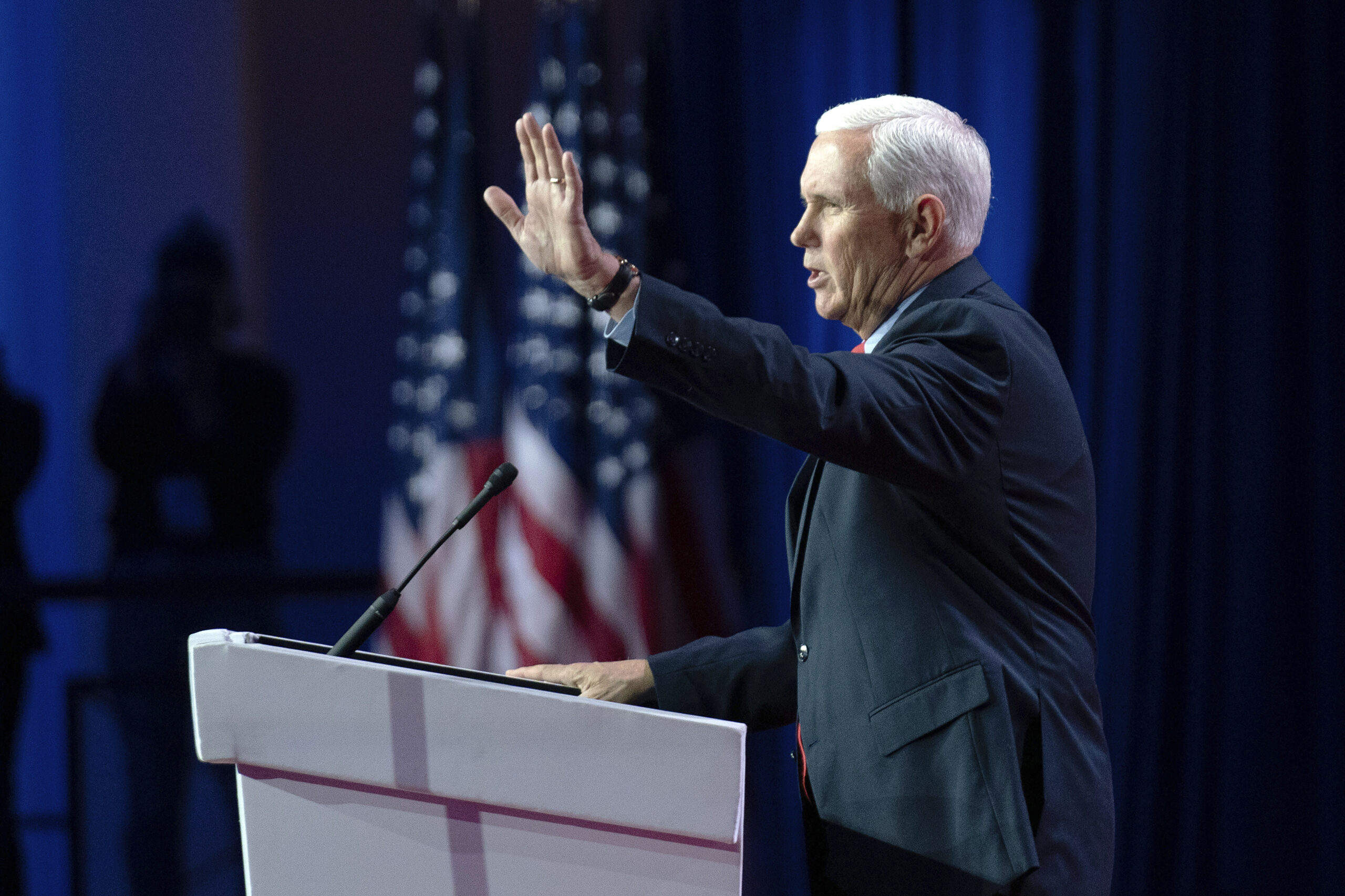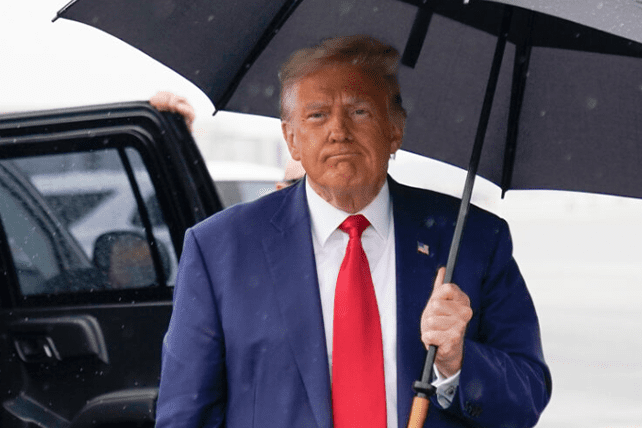But Wear, who now runs the Center for Christianity and Public Life, added that the Trump indictments give the former president’s Republican primary opponents an opening. Former Vice President Mike Pence, Wear noted, is already using Trump’s indictments related to Jan. 6 as a way to undermine the “presumption” that Trump is “someone who just wins.”
On Wednesday, Pence — who is described in the indictment as repeatedly rebuffing Trump’s alleged insistence that Pence help overturn the 2020 election results — responded to reporters’ questions on Wednesday by saying, “I really do believe that anyone who puts themself over the Constitution should never be president of the United States, and anyone who asks someone else to put them over the Constitution should not be president again.”
But even Pence, a former Indiana governor whose selection as Trump’s running mate was intended to lock in evangelical votes, said the issue should have been left to American voters, not the courts.
Later on Wednesday, Pence told Fox News his decision to refute Trump was “keep(ing) faith” with his oath to the American people and “Almighty God.”

Republican presidential candidate former Vice President Mike Pence speaks during the Faith and Freedom Coalition Policy Conference in Washington, Friday, June 23, 2023. (AP Photo/Jose Luis Magana)
The response to the latest indictment shows how Trump has refashioned the dynamics of evangelical politics, Wear said. Whereas politicians once courted evangelical leaders in hopes they would inspire their followers to turn out on their behalf, Republican activists now have a more direct relationship with conservative Christian voters. Evangelical pastors are as likely to follow the lead of their dyed-in-the-wool Republican congregants rather than risk their displeasure as influence their votes from the pulpit.
Wear pointed to last month’s Family Leadership Summit in Iowa, traditionally a major opportunity for GOP candidates to connect with the powerful evangelical caucus in the state. This year, the person grilling Republican White House hopefuls at the event was not a pastor or other broker of faith votes but former Fox News host Tucker Carlson.
“I don’t think there is any clearer picture of what’s going on in the right-wing political space,” Wear said. “What used to be assertions of evangelical influence are now assertions of evangelical assimilation into a political movement.”
This article originally appeared here.

